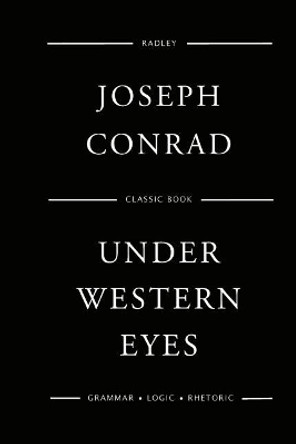Description
Growing up as an orphan, Razumou adopted the belief that all of Russia was his family, a sentiment that he carries into his higher education. Because of this, when talks of revolution start arising in Russia, Razumou decides to stay neutral. However, this becomes increasingly difficult when most of his classmates start to express their ardent support for a revolution. Still, Razumou decides not to take a stand on either side. Since he feels all of Russia is his family, Razumou equates choosing a side to betrayal. He is privileged enough to hold this neutrality for a while, though, after the assassination of the Minister of the State, Razumou must chose a side. Haldin, one of Razumou's classmates, shows up at Razumou's flat looking disheveled and hoping for asylum after having participated in the assassination of a Russian leader. Reluctantly, Razumou agrees to help Haldin. Feeling guilty and paranoid, Razumou slips into an identity crisis, and is forced to weigh the consequences as he struggles to decide whether to continue providing aid for Haldin, or turn his classmate in to the authorities.
Considered to be one of Joseph Conrad's major works, Under Western Eyes explores the injustice in the suffering of lower classes, and the unethical disregard for such social problems held by the rich. Narrated by a Swiss English teacher, Under Western Eyes is a unique perspective on revolutions, applicable to both the failed and successful Russian revolutions, changing the audience's perception depending on when it is read. A friend to all is a friend to none, so with the use of complicated moral themes and troublesome characters, Under Western Eyes questions the possibility of a truly neutral party.
This edition of Joseph Conrad's Under Western Eyes is redesigned with the modern reader in mind. With an eye-catching new cover design, and an easy-to-read font, Under Western Eyes is accessible and invites conversation.
About the Author
Joseph Conrad (1857-1924) was a Polish-British writer, regarded as one of the greatest novelists in the English language. Though he was not fluent in English until the age of twenty, Conrad mastered the language and was known for his exceptional command of stylistic prose. Inspiring a reoccurring nautical setting, Conrad's literary work was heavily influenced by his experience as a ship's apprentice. Conrad's style and practice of creating anti-heroic protagonists is admired and often imitated by other authors and artists, immortalizing his innovation and genius.
Book Information
ISBN 9781513269412
Author Joseph Conrad
Format Paperback
Page Count 280
Imprint Graphic Arts Books
Publisher Graphic Arts Books
Series Mint Editions
Details
Series: |
Mint Editions |
Imprint: |
Graphic Arts Books |













